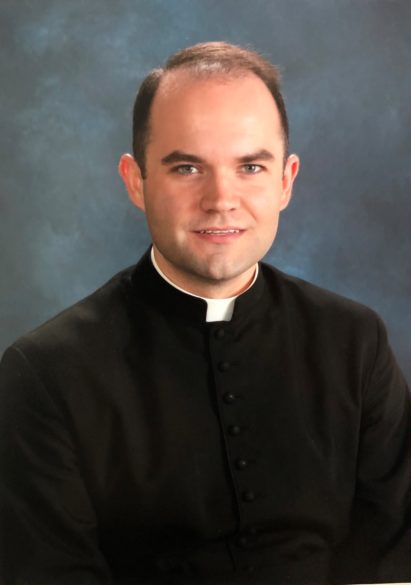
IN SPIRIT AND TRUTH
By Father Aaron Williams
The first four years of my seminary career I lived at St. Joseph Seminary College in St. Benedict, Louisiana, which is also home to a Benedictine Monastery. This allowed me a handful of years to experience the daily recitation of the Divine Office, or the Liturgy of the Hours in its choral form. Every day, several times during the day, the monks at St. Ben’s—like monks and nuns do every day across the world—gather in their church and chant the offices of the Church’s daily prayer which consist of patterns of psalms, hymns and readings. Most Catholics haven’t experienced this, but the daily witness of this chanted office had a great impact on my spirituality as a Catholic and now as a priest. This, especially, since every priest is bound to recite the hours of the Divine Office himself every day under pain of mortal sin. It is actually one of the main promises made at ordination—that the priest will pray all of these offices during the day, every day, for the rest of their lives.
As I continued through seminary, I began reading the documents of Vatican II (something all of us should do since so many people today claim to know what Vatican II said and yet so few have actually read the documents). What surprised me in the Council’s document on the liturgy was that the Council Fathers requested very directly and clearly that the experience I had in seminary of the chanted or common Divine Office be put into the hands of everyone. The Council teaches, “Pastors of souls should see to it that the chief hours, especially Vespers, are celebrated in common in church on Sundays and the more solemn feasts. And the laity, too, are encouraged to recite the divine office, either with the priests, or among themselves, or even individually” (Sacrosanctum Concilium, 100).
Many years ago, around the time of the Council of Trent and before then, it is far more common to find lay people in Church when the offices were being sung. This was probably because there was less to do back then. Even in some countries today, especially in Europe, it is not uncommon to find a parish which offers some offices at least on special feast days. Many of the ancient Cathedrals such as Notre Dame, Westminster Cathedral or St. Peter’s Basilica have resident priests who every day sing all the offices in public.
But, this wasn’t a tradition which caught on that much in the United States. Of all the American Cathedrals, only St. Louis Cathedral in New Orleans ever consistently had a public sung office—and this was probably because of its French roots and, sadly, is not a tradition which continues today. Still, the Second Vatican Council set it out as a goal that lay people experience this side of the worship of the Church. The daily offices of the Liturgy of the Hours make up the larger portion of the daily liturgy of the Church. Though the Mass is of course the most important, when you add all the other daily offices together you see how the Church intends to move the individual in prayer through all the various moments of the day—gently guiding us through the liturgical year.
I always enjoy when we get to Advent in the Divine Office. If you are just attending Mass, even daily, you might not get that feeling of anticipation the Church wants of us. But, the office makes it very clear. Very early on, texts start popping up such as, “Come Lord, and do not delay.” One of my favorite texts of Advent in the Divine Office says, “The Lord is coming soon, and will not be late. If he seems to delay, wait for him, for he will surely come and will not be late.”
St. Philip Neri, a favorite saint of mine, has been dubbed by Pope Francis the “patron saint of the New Evangelization.” One of the reasons he is deserving of this title is his ability to find ways to merge the daily experience of Catholics with the rhythm of the Church’s prayer. St. Philip noticed that Catholics in his day enjoyed good music and food. But, he wanted them to enjoy good preaching, too. So, Philip decided that on some nights of the week, he and some other priests would gather in the Church for the office of Vespers and would invite the faithful. But, not only that, he commissioned all the greatest composers he could find to write the best choral settings of the office. Then, once people were there for the music, albeit not the best reason, he would take the opportunity to capitalize on their presence and present a sermon which was relevant to the needs of the day—often taking a theme or an issue and expounding upon it over several weeks. Finally, everyone would go into the church square and share meal together.
The point is that St. Philip knew that the Church could find a way to weave the daily experience of the faithful with the prayer of the Church and a place that meets is in the Divine Office. How might parishes help fulfill this dream of the Council?
